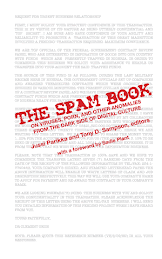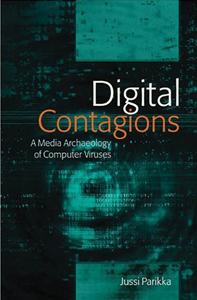
"Not long ago it would have been an absolutely absurd action to purchase a television or acquire a computer software to intentionally disable its capabilities, whereas today's media technology is marketed for what it does not contain and what it will not deliver." The basic argument in Raiford Guins' Edited Clean Version is so striking in its simplicity but aptness that my copy of the book is now filled with exclamation marks and other scribblings in the margins that shout how I loved it. At times dense but elegantly written, I am so tempted to say that this is the direction where media studies should be going if it did not sound a bit too grand (suitable for a blurb at the back cover perhaps!).
I shall not do a full-fledged review of the book but just flag that its an important study for anyone who wants to understand processes of censorship, surveillance and control. Guins starts from a theoretical set that contains Foucault's governmentality, Kittler's materialism and Deleuze's notion of control, but breathes concrete specificity to the latter making it really a wonderful addition to media studies literature on contemporary culture. At times perhaps a bit repetitive, yet it delivers a strong sense of how power works through control which works through technological assemblages that organize time, spatiality and desire. For Guins, media is security (even if embedding Foucault's writings on security would have been in this context spot on) -- entertainment media is so infiltrated by the logic of blocking, filtering, sanitizing, cleaning and patching (all chapters in the book) that I might even have to rethink my own ideas of seeing media technologies as Spinozian bodies defined by what they can do...Although, in a Deleuzian fashion, control works through enabling. In this case, it enables choice (even if reducing freedom into a selection from pre-defined, preprogrammed articulations). Control is the highway on which you are free to drive as far, and to many places, but it still guides you to destinations. Control works through destinations, addresses -- and incidentally, its addresses that structure for example Internet-"space".
Guins' demonstrates how it still is the family that is a focal point of media but through new techniques and technologies. Software is at the centre of this regime - software such as the V-Chip that helps parents to plan and govern their children's TV-consumption. Guins writes: "The embedding of the V-Chip within television manifests a new visual protocol; it makes visible the positive effects of television that it enables: choice, self-regulation, interaction, safe images, and security." What is exciting about this work is how it deals with such hugely important political themes and logics of control, but is able to do it so immanently with the technological platform he is talking about. Highly recommended, and thumbs up.








No comments:
Post a Comment